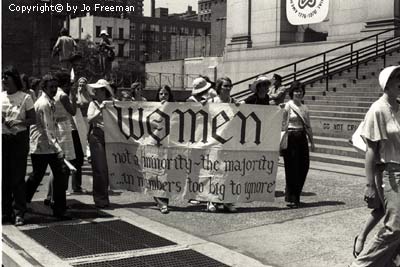The 1976 Democratic Convention
Related readings:
1976 Democratic Convention analysis.
1976 Republican Convention analysis and photos.
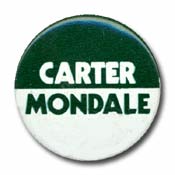 The 1976 Democratic Convention was the first in many decades in which women and women’s issues played an important role. This was due in part to the fact that the nominee – Jimmy Carter – was known weeks before the convention met, thus making its major official duty of selecting the Democratic Party ticket purely pro forma.
The 1976 Democratic Convention was the first in many decades in which women and women’s issues played an important role. This was due in part to the fact that the nominee – Jimmy Carter – was known weeks before the convention met, thus making its major official duty of selecting the Democratic Party ticket purely pro forma.
It was also due to the maturing of the political arm of the women’s movement. Feminists had been present in large numbers at the 1972 national nominating conventions, but were ignored when political considerations conflicted with the feminist agenda. At the 1976 Democratic National Convention feminists were taken seriously as political players.
By the time the Democrats met at Madison Square Garden in New York City from July 12 to July 15, much had been decided. Carter had locked up the Presidential nomination when he won the June 8 Ohio primary, though three other names were placed into nomination. His people had written the Democratic Party Platform, which was deliberately kept vague in order to avoid discord. The only minority report was quickly adopted by a voice vote with little debate. The Democrats felt that 1976 was a Democratic year and wanted to have no public displays of disharmony.
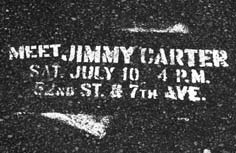 Unlike the previous three conventions there were no credentials challenges, largely because the delegate selection rules had been changed to make it harder to bring such challenges. The main disagreement was on the rules themselves. Because the rules for 1976 made it harder for women and blacks to challenge delegations in which they felt they were under represented, there was a minority report to change the delegate selection rules. In another year, this report might have been debated on the floor. But the Carter forces didn’t want public disagreement so he met with representatives of a women’s caucus on Sunday and Monday to work out a compromise.
Unlike the previous three conventions there were no credentials challenges, largely because the delegate selection rules had been changed to make it harder to bring such challenges. The main disagreement was on the rules themselves. Because the rules for 1976 made it harder for women and blacks to challenge delegations in which they felt they were under represented, there was a minority report to change the delegate selection rules. In another year, this report might have been debated on the floor. But the Carter forces didn’t want public disagreement so he met with representatives of a women’s caucus on Sunday and Monday to work out a compromise.
The Democratic Women’s Caucus met each morning. The most important meeting was Tuesday, where women debated the wisdom of accepting the compromise versus having a floor fight. This meeting was held in the headquarters hotel; anyone could come and could speak, but only delegates and alternates could vote. After much eloquent debate, the women accepted the compromise.
Inside the convention Rep. Barbara Jordan of Texas was the keynote speaker on Monday night. Elected to the House in 1972, she had achieved national prominence from her work on the Judiciary Committee during the debate over impeaching President Richard M. Nixon. She spoke to the Women’s Caucus on Wednesday.
Several women’s organizations organized actions at the convention. On Saturday, July 10, the National Organization for Women paraded east on 34th St. to hold a rally in front of the General Post Office, across from the Garden.
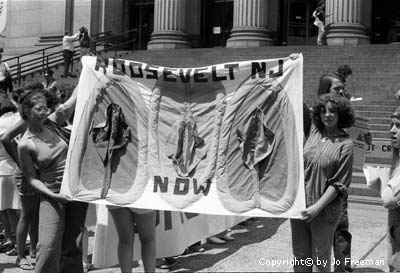
Rally speakers included
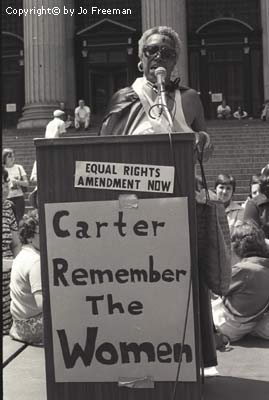
Flo Kennedy
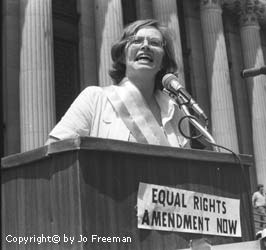
Carol Bellamy
The next day about ten thousand pro-life protestors rallied in Central Park before marching to Madison Square Garden. At the rally they were addressed by Ellen McCormack, who had run for the Democratic nomination for President in order to speak out against abortion. A small pro-choice group rallied across the street.
Rally in Central Park
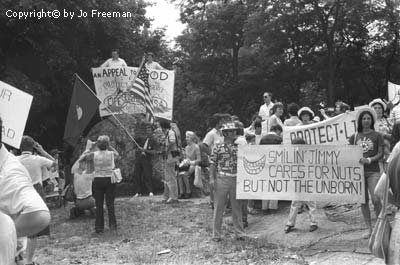
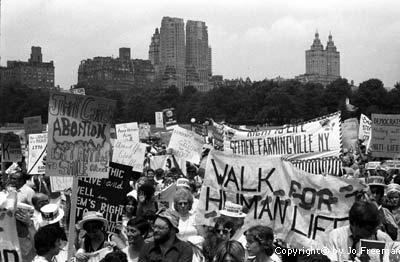
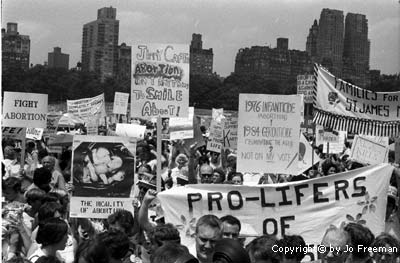
The March from Central Park
3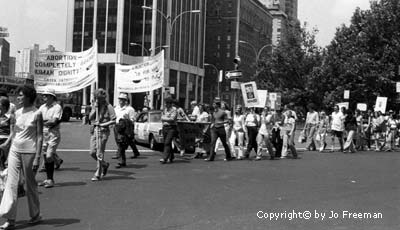
Monday morning Democratic Women’s Caucus:
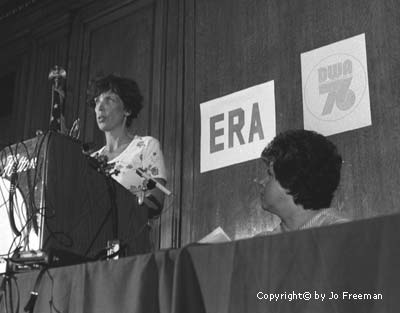
Patt Derian & Koryne Horbal
The National Women's Political Caucus held a fundraising party Monday night while delegates inside the Garden listened to Barbara Jordan give the keynote address to the convention.
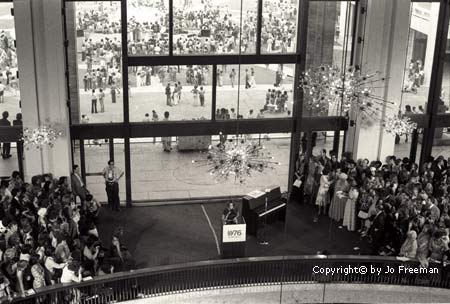
Gloria Steinem speaks
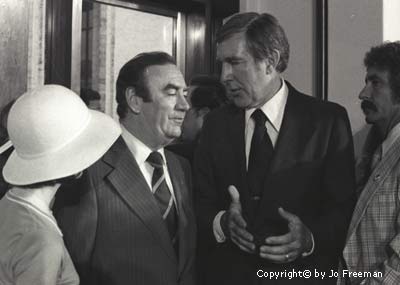
New York Gov. Hugh Carey and Arizona Rep. Morris Udall
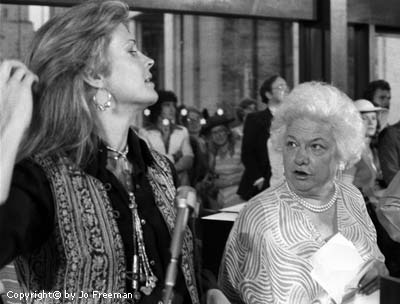
Candace Bergen and Liz Carpenter
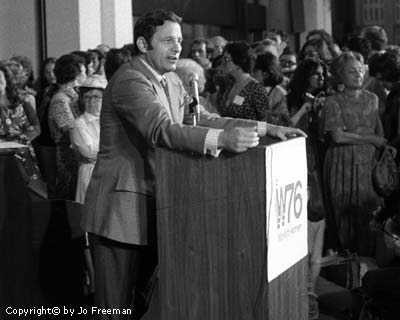
Sen. Birch Bayh of Indiana
Both Sen. Bayh and Rep. Udall were candidates for President in 1976. Bayh, chief sponsor of the ERA when it passed the Senate in 1972, dropped out after seriously losing several primaries. Udall got 329.5 votes at the convention.
Books by Jo | What's New | About Jo | Photos | Political Buttons
Home | Search | Links | Contact Jo | Articles by Jo
